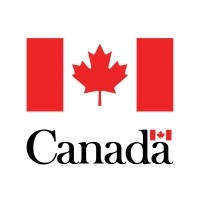
Collective Bargaining Information Services
At a glance
- No Condition
- Open Date : November 14, 2019
- Construction
- Health care and social assistance
- Public administration
- Ontario
- Non-profit
- Public or Parapublic institution
- For-profit business
- All revenue ranges
- All organization sizes
- All groups
- Hospitals and Rehabilitation
- Other Health Services
- Law and Legal Services
- Social Services
- Employment and Training
- Civic and Advocacy Organizations
- Business Associations
- Professional Associations
- Unions
- Business owners / entrepreneurs
- Nonprofits / charities
- All structures
- Provincial
Overview
Information for employers involved in collective bargaining processes with employee unions, including trends, recent settlements, wage developments, work stoppages and more.
Activities funded
Eligibility
Who is eligible?
Unions and employers involved in the process of negotiating collective agreements in Ontario can apply for the appointment of a conciliation officer under the Labour Relations Act. This involves both parties being active in collective bargaining, which can include meetings and negotiations either for the first collective agreement or the renewal of an existing agreement.Eligible expenses
The grant related to the collective bargaining process in Ontario involves activities surrounding the negotiation and establishment of collective agreements between unions and employers. The eligible projects focus on ensuring a smooth and legally compliant bargaining process, including assistance from conciliation officers and the handling of negotiation impasses.
- Initiating the negotiation process by providing notice to bargain for new or existing collective agreements.
- Requesting the appointment of a conciliation officer for assistance in reaching a collective agreement.
- Filing copies of newly reached collective agreements with the Minister of Labour, Immigration, Training and Skills Development.
- Participating in conciliation meetings to resolve differences with the help of a conciliation officer.
Eligible geographic areas
This grant applies specifically to entities operating under the jurisdiction governed by Ontario's collective bargaining laws. Hence, eligible geographical areas are limited to Ontario, Canada.
- Organizations functioning within Ontario, Canada.
Selection criteria
How to apply
Notice to Bargain
- Union or employer provides written notice to the other party to begin negotiations for a collective agreement.
- Ensure compliance with timing requirements as stipulated in any existing agreements or the LRA.
Request Appointment of a Conciliation Officer
- Prepare and submit a request to the Minister of Labour for the appointment of a conciliation officer.
- If bargaining the first collective agreement, include a copy of the OLRB certification or voluntary recognition agreement.
- If renewing an existing agreement, attach the most recent agreement and signed signature page.
- Send the request via email to the designated address with the necessary documentation attached.
File New Collective Agreement
- Once a new collective agreement is reached, file it with the Minister of Labour in the required format.
- Submit through the online submission page designated by the ministry.
Additional information
Here are additional relevant details for applicants involved in the collective bargaining process in Ontario:
- The requirement for a no-board notice or a conciliation board's report to legally strike or lock-out.
- A "Request for interest arbitration appointment" must be emailed, as mail or fax requests are not currently accepted.
- Collective agreements must be submitted in a digital format (Microsoft Word or PDF) to be filed with the Minister of Labour, Immigration, Training and Skills Development.
- A "last-offer vote" can only be requested once per round of collective bargaining and cannot be done by email if attachments exceed 10 MB.
- Information and data related to collective agreements are accessible through the Collective Agreements e-Library website and Collective Bargaining Ontario.
- The Ontario Labour Relations Board (OLRB) plays a significant role in overseeing votes and certain disputes, highlighting their function in Ontario's labor relations system.
Frequently Asked Questions about the Collective Bargaining Information Services Program
What is the Collective Bargaining Information Services?
Where is the Collective Bargaining Information Services available?
Is the Collective Bargaining Information Services a grant, loan, or tax credit?
Who are the financial supporters of the Collective Bargaining Information Services?
Who can I contact for more information about the Collective Bargaining Information Services?
More programs like this

Expanded Energy Management Program
Independent Electricity System Operator (IESO)
XLerate Program
Independent Electricity System Operator (IESO)
Court Challenges Program (CCP)
University of Ottawa
Ontario Anti-Hate Security and Prevention Grant (2025-26)
Government of Ontario
Regional Artificial Intelligence Initiative (RAII) for Northern Ontario
Federal Economic Development Agency for Northern Ontario (FedNor)
OTF — Organizational Mentors
Ontario Trillium Foundation (OTF)
OTF — Community Building Fund – Capital Stream
Ontario Trillium Foundation (OTF)
Enabling Accessibility Fund — Small projects
Employment and Social Development Canada (ESDC)
Parliamentary District Policing Program
Public Safety Canada (PSC)